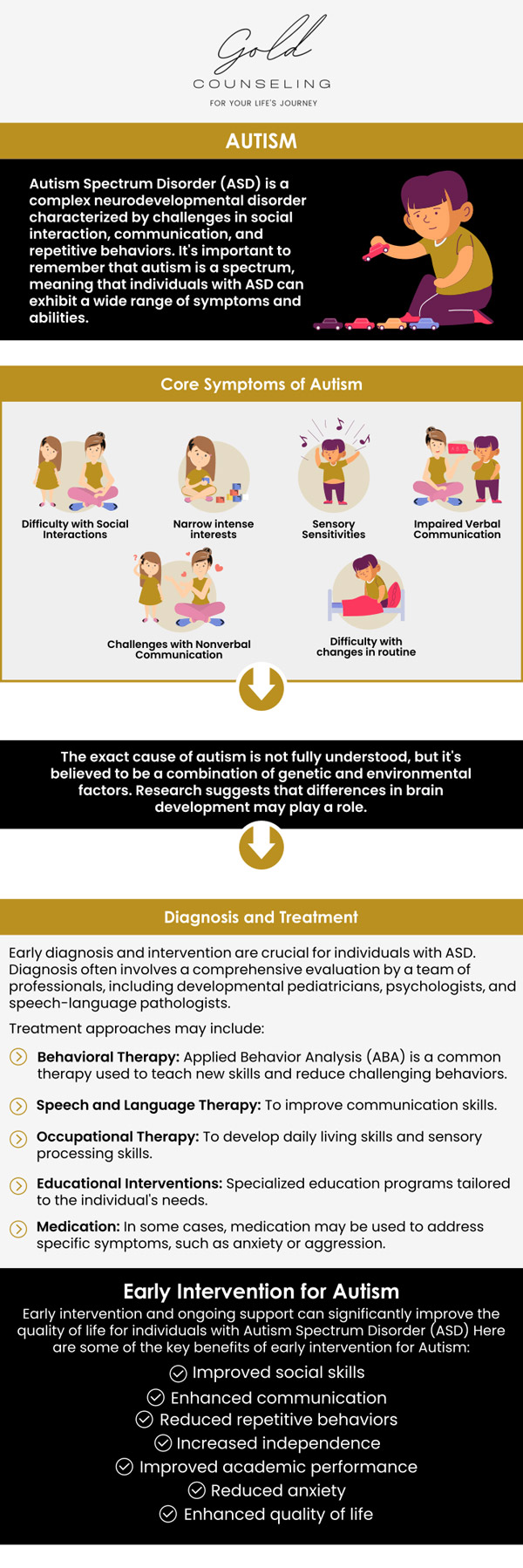Trick Indications and Symptoms to Acknowledge in Individuals With Behavior Autism
When you come across someone with behavior autism, acknowledging crucial symptoms and signs is crucial. You might discover obstacles in social interactions and communication, along with a strong need for regimens. Additionally, sensory level of sensitivities can cause frustrating experiences. Understanding these characteristics can improve your assistance and interventions, but there's even more to discover about exactly how these behaviors materialize in daily scenarios. Let's explore what these indications truly resemble.
Difficulties in Social Communications
When you connect with somebody on the autism spectrum, you could notice they battle with social hints and interaction. These obstacles can make social communications feel frustrating for them.
When they do involve, they may talk concerning their interests in excellent information without noticing if you're interested. Understanding these challenges can assist you come close to interactions with compassion and patience, promoting an extra comfortable setting for both of you.
Trouble With Verbal and Non-Verbal Interaction

Identifying these indications is important, as it assists you better assistance and involve with individuals on the autism spectrum. By recognizing their interaction obstacles, you can foster much more purposeful connections and offer an extra supportive environment.
Recurring Habits and Regimens
Communication difficulties often accompany other indications of autism, such as repetitive behaviors and a strong choice for routines. You might discover that individuals with autism typically involve in details, repeated actions, like hand-flapping, shaking, or duplicating expressions. These behaviors can supply comfort and a sense of control in a commonly frustrating world.
When they follow a structured timetable,Regimens are just as important; several people thrive. You may find that changes to these regimens can result in significant distress. If they have a day-to-day ritual of consuming morning meal at a particular time or complying with a specific route to institution, any type of disturbance can create stress and anxiety.
Acknowledging these patterns assists you understand their habits and provide support. By fitting their demand for regular and allowing repeated activities, you can develop an extra comfy environment that reduces their obstacles.
Sensory Sensitivities

Usual Sensory Triggers
Sensory level of sensitivities can substantially impact day-to-day live for people with autism, as certain stimulations frequently activate frustrating reactions. Typical sensory triggers include loud noises, intense lights, and solid scents. You may discover that sudden noises, like alarms or alarms, create anxiousness or distress. Likewise, fluorescent illumination in stores can feel uncomfortable and severe. Appearances can also play a significant role; rough fabrics or certain food structures may be intolerable for you. In addition, crowded places can overwhelm your detects, making it tough to relax or focus. Comprehending these triggers can help you manage your atmosphere better. By being aware of what influences you, you can take actions to lessen pain and enhance your day-to-day experiences.
Behavior Feedbacks Described
Comprehending your behavior feedbacks to sensory sensitivities is crucial, as they frequently reveal how you connect with the world. You may notice that certain noises, lights, or textures overwhelm you, bring about anxiousness or pain. When confronted with these stimuli, you could withdraw, cover your ears, and even respond aggressively. These feedbacks aren't simply quirks; they're your means of handling overstimulation. You may also locate yourself looking for certain sensory experiences, like deep stress or peaceful environments, to aid ground yourself. Identifying these patterns helps you understand your demands better and can lead exactly how you connect them to others. By acknowledging your sensory level view website of sensitivities, you can work towards developing an atmosphere that really feels a lot more workable and comfy for you.
Coping Techniques Overview
Identifying your sensory sensitivities is just the initial action; now it's time to discover coping strategies that can aid you manage those experiences successfully. Beginning by creating a sensory toolkit customized to your needs. This might consist of noise-canceling earphones, fidget playthings, or relaxing aromas. Establishing a structured routine can likewise supply predictability, lowering stress and anxiety around sensory overload. When you feel overwhelmed, take breaks in a quiet space to regroup. Practicing mindfulness methods such as deep breathing can assist ground you in the moment. Additionally, communicate your requirements with those around you; having encouraging family and friends can make a huge distinction. Bear in mind, locating what works best for you might require time, so be open and patient to attempting new strategies.
Restricted Interests and Emphasis
While many individuals create a large range of interests, those with autism More Info frequently demonstrate restricted passions and an extreme concentrate on details topics. You might see that a person with autism can invest hours delving into their favorite topic, whether it's a specific type of train, a details movie, or a scientific principle. This intense emphasis isn't just a leisure activity; it can become a main part of their identity and social communications.
You might locate that conversations rotate around these interests, and they might struggle to engage in more comprehensive subjects. By understanding and acknowledging these limited rate of interests, you can foster a helpful environment where they feel valued and comprehended, enabling for more purposeful links and communications.
Emotional Policy Problems
Individuals with autism frequently face challenges in psychological law, which can be affected by their intense focus on particular interests. You could see that when a person is deeply participated in a preferred task, they can experience solid emotions, whether excitement or aggravation. This intensity often makes it hard for them to move gears or handle their feelings when points do not go as intended.

Variability in Developmental Turning Points
When it comes to developing landmarks, you'll see that people with autism often show a vast array of irregularity. You may see a kid stand out in language skills however struggle with social interactions.
It's crucial to identify that each individual's journey is one-of-a-kind. Observing these patterns can assist you understand their strengths and needs better.
Regularly Asked Questions
Just How Is Autism Diagnosed in Children and Adults?
To diagnose autism in kids and grownups, specialists examine behavior, interaction abilities, and social communications. If a private meets the criteria for autism spectrum over here condition., they frequently use standardized examinations, meetings, and monitorings to figure out.
Exist Different Sorts Of Autism Range Disorders?
Yes, there are different kinds of autism spectrum conditions, including Asperger's disorder and pervasive developmental disorder-not or else specified. Each type varies in intensity and attributes, so recognizing these distinctions can aid you far better support individuals with autism.
What Therapies Are Effective for Individuals With Autism?
When thinking about reliable therapies for individuals with autism, you'll discover choices like Applied Behavior Analysis, speech treatment, and job-related therapy. Each strategy can help enhance communication, social skills, and everyday operating customized to private requirements.
Can People With Autism Lead Independent Lives?
Yes, individuals with autism can lead independent lives. With the appropriate assistance, abilities training, and sources, you can help them establish self-sufficiency, take care of everyday tasks, and flourish in various atmospheres, fostering their freedom.
How Can Households Assistance Enjoyed Ones With Autism?
You can sustain your liked ones with autism by producing a structured atmosphere, encouraging their passions, practicing persistence, promoting communication, and promoting social abilities. Celebrate their success, despite how small, and build a supportive community.
Although numerous individuals on the autism range can understand and make use of language, they usually face considerable obstacles with both non-verbal and spoken interaction. Recognizing these indications is necessary, as it assists you much better assistance and engage with people on the autism spectrum. You could notice that individuals with autism typically involve in specific, repetitive activities, like hand-flapping, rocking, or repeating phrases.Sensory level of sensitivities can significantly affect everyday life for individuals with autism, as specific stimuli typically set off overwhelming reactions.When it comes to developmental turning points, you'll notice that people with autism commonly reveal a large range of irregularity.